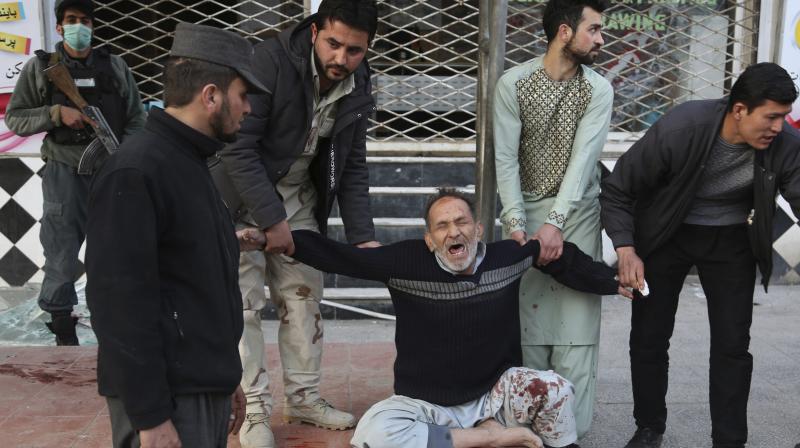Kabul's day of horror

Monday was among the deadliest days in terrorist-ravaged Afghanistan. Twenty-nine people, including nine journalists who had gone out to report the first blast and seemed targeted, were killed in twin blasts in Kabul. The ISIS has claimed responsibility. A tenth Afghan journalist, who worked for BBC and Reuters, was shot dead in Khost in eastern Afghanistan. We condemn these attacks and express our solidarity with the Afghan people and its journalists, who work in dangerous circumstances.
This year has been particularly bad. Terrorist attacks have tended to be of a sectarian nature when not directed at government forces. But Monday’s horror in Kabul appeared aimed at just ordinary people.
The terrorists have undoubtedly succeeded in bringing disrepute to the Ghani-Abdullah government, that has failed to take meaningful political and military steps to check militancy. Kabul has seen anti-government protests on this count lately. Considerable responsibility rests with the United States. It carries on bombing innocent Afghan civilians in villages while terror sanctuaries are on the other side of the border, in Pakistan-held areas. The Trump administration has done little to implement its South Asia policy, revealed in July, which asks Pakistan to be serious about fighting terrorism with the US aid it gets for this purpose.
Afghans see India as a special friend. New Delhi can take this responsibility seriously and persuade the key players — the United States, Britain, Pakistan, Russia, China, Iran, Turkey and Saudi Arabia — to convene a special conference on terrorism and the security situation in Afghanistan, which impacts regional peace and stability. India must also take up this issue at the SCO summit in June.

